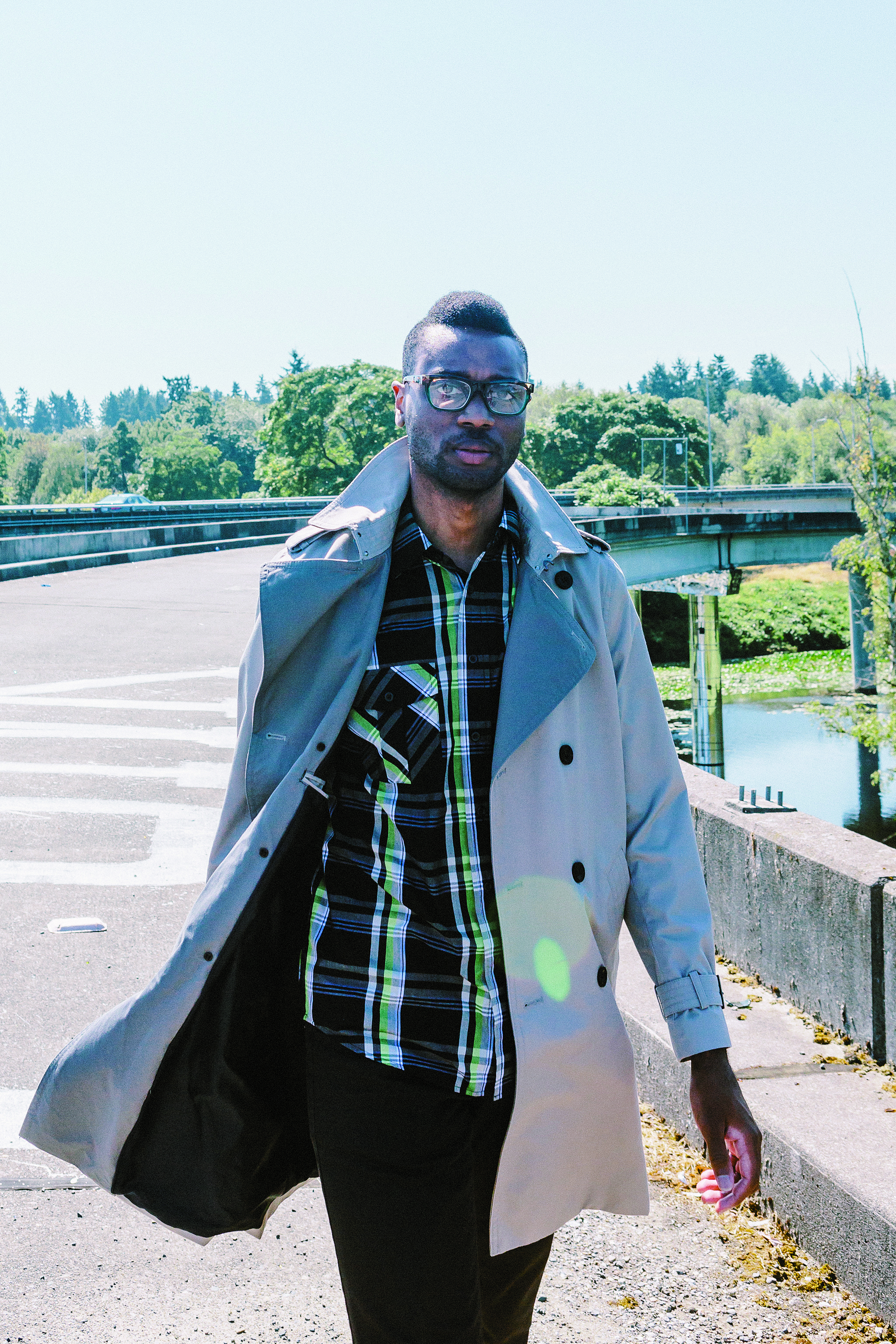You get the sense that filmmaker Shaun Scott can’t stop talking about history, yet he also wants to shift the conversation to the psychology of the lovers in his new movie, Pacific Aggression. (It opens next month at the Grand Illusion.) Sitting for an afternoon beer at Linda’s on Capitol Hill, not quite 30, Scott is brimming with charm and intelligence. He’s made four low-budget films to date, and none fall into the usual indie pitfalls and cliches. Instead of self-absorbed, whiny slackers, his characters are millennials with a healthy sense of history and their place in a socioeconomic system that bounds their choices.
His characters Meryl and Frank, whom we suspect will hook up, must first hash through their views on Washington state history, the displacement of Native Americans from their land, the symbolism of John Wayne and old Western movies, the making of the A-bomb’s payload at Hanford, the legacy of its damage in Japan, and the overload of impersonal Internet culture versus the old-time halo of the written word. And since our two would-be lovers spend at least half the movie apart, much of that debate is expressed in voiceover—not conventional dialogue scenes.
Portrait of the director. Photo by Toryan Dixon
None of which sound remotely daunting or intimidating as Scott touches on those themes in person. Raised in Shoreline and a history major at the UW, he says he hoped to make Pacific Aggression “a story of self-reinvention, a really old story” that nonetheless has as its conceit the Internet and screen addiction of Seattle college student Meryl (Libby Matthews), who’s cyber-stalking the New York author she met two years prior. Frank (Trevor Young Marston) is meanwhile stalled out on a new book proposal; and eventually his editor pushes him toward travelogue—a road trip back to Washington state (mostly on the east side) on which he’ll also file dispatches for the Web. He’s disdainful of the new medium and sends Meryl a long, handwritten letter—to which she eventually jabs a few characters and emoticons in reply.
How could these two possibly end up together? He loves cowboy movies; she’s of Native-American descent. They’re opposites lugging the cultural baggage of different traditions, which are often expressed via the archival footage—Western movies, cartoons, educational films, old newsreels of Hiroshima and uranium mining near Spokane—that’s something of a signature in Scott’s movies.
“The last four to five years have been so documentary-minded,” says Scott of his quartet of films. The first two were docs, and 100% Off: A Recession-Era Romance, which played the Grand Illusion in 2012, is a hybrid like Pacific Aggression. “History’s always gonna be an underlying appeal for me. That impulse will always show up,” he says. “Documentary and drama—it never occurred to me to keep those streams separate.” Regarding Frank and Meryl’s history-mindedness, he adds, “These characters are preoccupied with it. That’s their narcissism. Both have to look at the world with this historical lens.” Still, Scott says he’s now hoping to lean more toward fiction in coming projects (while also juggling MBA studies).
With his vintage watch and buzzing iPhone, Scott is no technophobe—unlike Frank, who’s more the dead-ender in print, an inky romantic holdout against the new technological generation represented by Meryl. Her case is extreme, but instead of simply decrying the cyber-obsessions of youth in Pacific Aggression, Scott says he sought “a more subtle approach to how someone could get into addiction and get out of it.” For Meryl, that means the patented “digital cleanse” method of her shrink (local stage actress Marya Sea Kaminski, the ringer in the cast), a woman hiding some issues of her own. And whether the debates here are past-versus-present or technology-versus-print, Scott isn’t taking sides. “There are as many characters on one side as the other,” he says.
Libby Matthews as Meryl in Pacific Aggression. Courtesy Shaun Scott
Scott describes himself as being “really, really interested in how the city and state were developed” (essentially what Frank is learning), and he casually cites local history and culture books by the likes of Roger Sale, Fred Moody, and Timothy Egan. He’s clearly a guy with a bulging bookshelf at home, yet one who’s comfortable with the digital age—a dialectic that Frank and Meryl need to reconcile if their romance is to happen. Grand Illusion Cinema 1403 N.E. 50th St., 523-3935, grandillusioncinema.org. $5–$8. Fri., Oct. 3–Thurs., Oct. 9.
bmiller@seattleweekly.com
Read more features from Seattle Weekly’s 2014 Fall Arts Guide, as well as a complete calendar of this season’s events, here.









